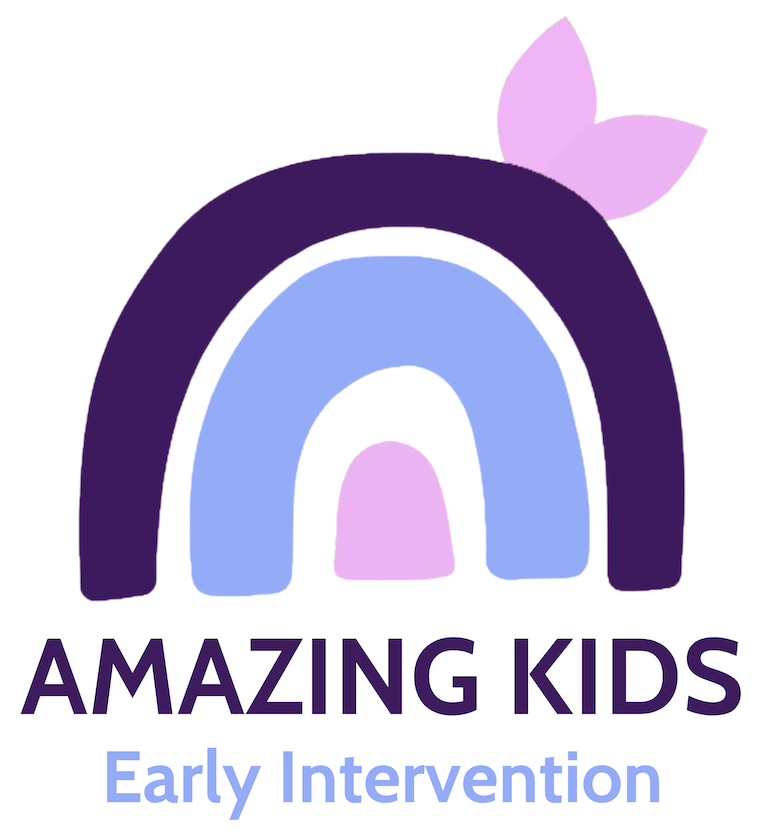Family plays a critical role in the development, well-being, and success of young children. For families with autistic children under five years old, navigating the challenges, uncertainties, and triumphs alongside their unique developmental needs can be both demanding and rewarding. A healthy family dynamic is crucial in providing the necessary foundation for autistic children to grow and thrive, fostering highly effective communication, strong emotional bonds, and functional daily routines. Early intervention programs, such as the Early Start Denver Model (ESDM), not only aim to address the developmental needs of young autistic children but also offer support and guidance to empower parents and improve family dynamics.
At Amazing Kids, we recognise the significance of nurturing a healthy family dynamic to complement our ESDM early intervention services, ultimately benefiting the entire family unit. Our experienced therapists work closely with parents to create individualised support plans, providing practical tips, resources, and encouragement to address the challenges commonly faced by families with young autistic children.
In this blog post, we will elucidate the importance of healthy family dynamics for autistic children, discuss how our skilled therapists implement ESDM principles to foster family wellness and share valuable advice for parents seeking to enhance their family environment at home.
The Importance of Healthy Family Dynamics for Autistic Children
A positive family environment significantly impacts autistic children’s well-being, learning, and development. Key aspects of healthy family dynamics include effective communication, emotional support, understanding individual needs, and fostering strong emotional bonds. These elements provide a stable framework for autistic children, helping them to:
1. Develop self-confidence and resilience
2. Build effective communication and social skills
3. Foster emotional regulation and coping mechanisms
4. Navigate daily routines and transitions
Implementing ESDM Principles to Support Family Wellness
The Early Start Denver Model (ESDM) is a holistic early intervention approach that provides comprehensive support for families with autistic children. Our expert therapists at Amazing Kids utilise ESDM principles to address family wellness by:
1. Collaborative planning: Involving parents in the goal-setting and decision-making process, ensuring that family values and needs are considered.
2. Parent coaching and guidance: Empowering parents with ESDM techniques and strategies, encouraging their active involvement in their child’s interventions.
3. Regular progress and feedback sessions: Facilitating open communication between therapists and parents, allowing for ongoing adjustments to improve family well-being.
4. Provision of individualised family support: Offering tailored advice to address the unique challenges encountered by each family.
Addressing Common Challenges Faced by Families with Autistic Children
Families with young autistic children may face several challenges in achieving a healthy family dynamic. Some common issues include:
1. Managing stress and anxiety: The demands of supporting an autistic child can be overwhelming for parents, leading to increased stress levels.
2. Balancing the needs of all family members: Ensuring equitable allocation of time and attention between children can be challenging for parents.
3. Facilitating effective communication: Parents may struggle to find ways to communicate effectively with their autistic child due to language or sensory processing differences.
Practical Tips for Enhancing Family Dynamics at Home
Parents play a crucial role in fostering a healthy family environment. Here are some practical tips to promote a supportive and nurturing home setting:
1. Create consistent routines: Establishing predictable daily routines provides a sense of stability and security for autistic children.
2. Practice open communication: Encourage open, honest, and respectful conversations within the family, ensuring each member can express their thoughts and feelings.
3. Prioritise self-care: Parents should ensure they set aside time for their well-being, as their mental and emotional health directly impacts their child’s development.
4. Seek professional support: Reach out to qualified therapists, like those at Amazing Kids, for individualised guidance on managing family dynamics.
Utilising ESDM Early Intervention to Empower Families with Autistic Children
Fostering healthy family dynamics is paramount for the well-being and success of young autistic children and their families. At Amazing Kids, we strive to support these vital dynamics through our ESDM early intervention services, providing comprehensive assistance tailored to each family’s unique needs. Our skilled ESDM therapists work collaboratively with parents to create individualised support plans that encompass effective communication, emotional support, and a nurturing home environment.
Together, we empower families with autistic children to navigate life’s challenges and triumphs with understanding, empathy, and mutual support. By fostering healthy family dynamics, we lay the groundwork for young autistic children to realise their full potential and enjoy fulfilling, successful futures.
